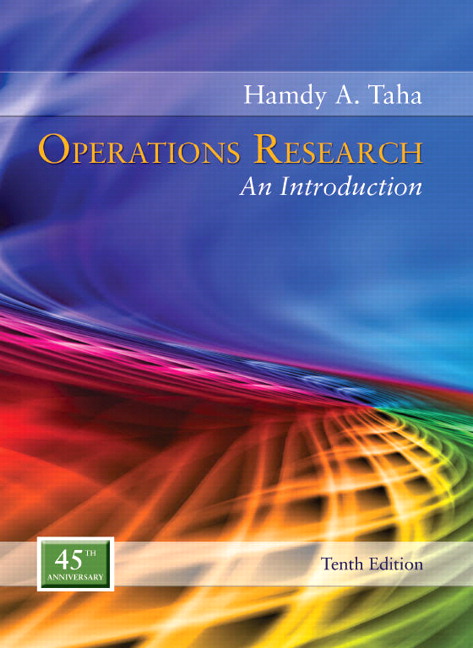Copies of the classnotes are on the internet in PDF format as given below. The notes and supplements may contain hyperlinks to posted webpages; the links appear in red fonts. These notes have not been classroom tested and may have typographical errors.
"Introduction to Operations Research 1" (MATH 4587/5587) is no longer a formal ETSU class. Such a class existed until the late 1990s (it was titled "Operations Research 1"). The catalog description for that class was: "Topics in linear programming; transportation and transshipment problems, branch and bound techniques, and mixed integer programming." This is from the 1989-90 catalog. The prerequisites were Linear Algebra (MATH 2010), Calculus 3 (MATH 2110), and one upper division course in statistics.
ETSU now has a graduate sequence in operations research (Operations Research 1 and 2, MATH 5810 and 5820). These notes are meant to be introductory and for self-study.
- Chapter 1. What is Operations Research? Chapter 1 Introduction notes
- Chapter 2. Modeling with Linear Programming.
- Chapter 3. The Simplex Method and Sensitivity Analysis.
- Chapter 4. Duality and Post-Optimal Analysis.
- Chapter 5. Transportation Model and Its Variants.
- Chapter 6. Network Models.
- Section 6.1. Scope and Definition of Network Models. Section 6.1 notes
- Section 6.2. Minimal Spanning Tree Algorithm. Section 6.2 notes
- Section 6.3. Shortest-Route Problem.
- Section 6.4. Maxmimal Flow Model.
- Section 6.5. CPM and Pert.
- Chapter 7. Advanced Linear Programming.
- Chapter 8. Goal Programming.
- Chapter 9. Integer Linear Programming.
- Chapter 10. Goal Programming.
- Chapter 11. Traveling Salesperson Problem (TSP).
- Chapter 12. Deterministic Dynamic Programming.
- Chapter 13. Inventory Modeling (with Introduction to Supply Chains).
- Chapter 14. Review of Basic Probability.
- Chapter 15. Decision Analysis and Games.
- Chapter 16. Probabilistic Inventory Models.
- Chapter 17. Markov Chains.
- Chapter 18. Queing Systems.
- Chapter 19. Simulation Modeling.
- Chapter 20. Classical Optimization Theory.
- Chapter 21. Nonlinear Programming Algorithms.
Return to Bob Gardner's home page

